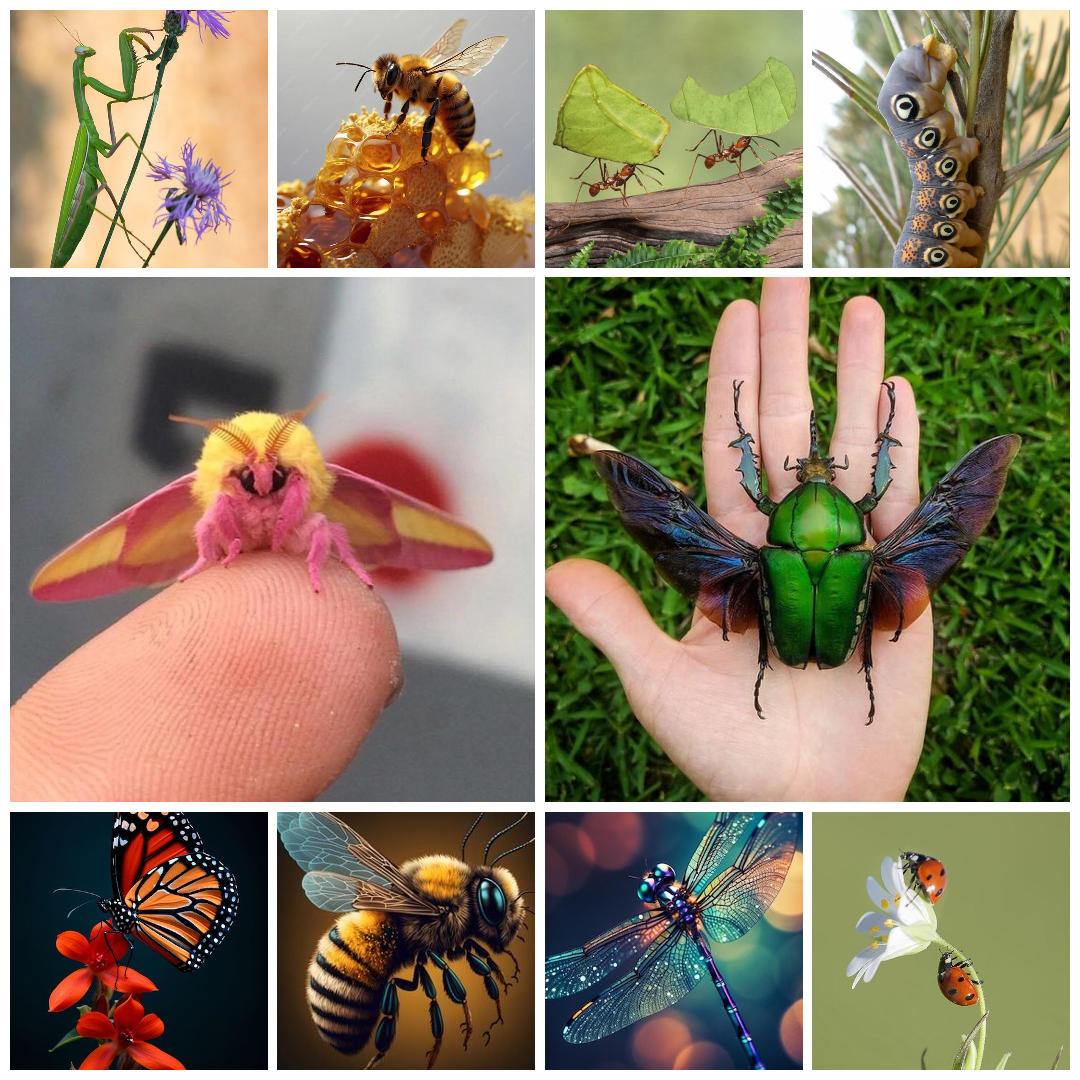Saving Insects from Global Decline: A Call to Action
In recent years, scientists and environmentalists have raised alarms about the dramatic decline in insect populations world
wide. This decline, often referred to as the "
insect apocalypse," poses a significant threat to global biodiversity, ecosystems, and human survival. In this blog, we'll explore the importance of insects, the causes behind their decline, and actionable steps we can take to protect these vital creatures.
The Importance of Insects
Insects play a crucial role in maintaining the balance of our ecosystems. Here are some key reasons why insects are indispensable:
- Pollination: Approximately 75% of flowering plants rely on insects for pollination, including many of the crops we consume daily.
- Decomposition: Insects break down organic matter, recycling nutrients back into the soil and promoting plant growth.
- Food Web: Insects serve as a primary food source for many animals, including birds, amphibians, and mammals.
- Pest Control: Predatory insects help control populations of other pests, reducing the need for chemical pesticides.
Causes of Insect Decline
Several factors contribute to the global decline in insect populations. Understanding these causes is crucial for developing effective conservation strategies.
Habitat Loss:
Urbanization, deforestation, and agricultural expansion have led to the destruction of natural habitats. As a result, many insects lose their homes and food sources, leading to population declines.
Pesticide Use:
The widespread use of pesticides in agriculture has a devastating impact on insects. These chemicals not only kill pests but also harm beneficial insects like bees and butterflies.
Climate Change:
Climate change affects insects in various ways. Changes in temperature, precipitation, and weather patterns can disrupt their life cycles, migration patterns, and habitats.
Pollution:
Pollution from industrial activities, plastics, and other sources contaminates ecosystems, making them inhospitable for insects.
Invasive Species:
Non-native species introduced to new environments can outcompete or prey on native insects, leading to declines in local populations.
Steps to Save Insects
While the situation is dire, there are numerous actions individuals, communities, and governments can take to help reverse the decline of insect populations.
Promote Sustainable Agriculture
Encouraging sustainable agricultural practices can significantly reduce the impact on insect populations. This includes:
- Reducing pesticide use: Farmers can adopt integrated pest management (IPM) techniques to minimize pesticide reliance.
- Planting cover crops: These crops provide habitat and food for insects, enhancing biodiversity on farms.
- Maintaining hedgerows and wildflower strips: These areas serve as refuges for insects amidst agricultural landscapes.
Create Insect-Friendly Gardens
Individuals can make a difference by transforming their gardens into insect havens. Here are some tips:
- Plant native flowers: Native plants attract and support local insect species.
- Avoid chemical pesticides: Use natural alternatives or encourage natural predators to control pests.
- Provide water sources: Shallow dishes of water with pebbles can help thirsty insects.
Support Conservation Efforts
Supporting organizations and initiatives dedicated to insect conservation can amplify efforts to protect these vital creatures. Consider:
- Donating to conservation groups: Financial contributions help fund research, habitat restoration, and advocacy efforts.
- Participating in citizen science projects: These projects often rely on public participation to gather data on insect populations and distribution.
Advocate for Policy Changes
Policies at the local, national, and international levels can significantly impact insect conservation. Advocate for:
- Stronger pesticide regulations: Pushing for stricter controls on pesticide use can protect beneficial insects.
- Habitat protection: Supporting policies that protect and restore natural habitats can provide safe havens for insects.
- Climate action: Promoting policies that address climate change can help mitigate its impact on insect populations.
Conclusion
The decline of insect populations is a pressing global issue that requires immediate attention and action. By understanding the causes of this decline and taking steps to protect and restore insect habitats, we can help ensure the survival of these vital creatures. Insects are integral to the health of our ecosystems, and their preservation is essential for the well-being of our planet and future generations. Let's take action now to save the insects and secure a sustainable future for all.

